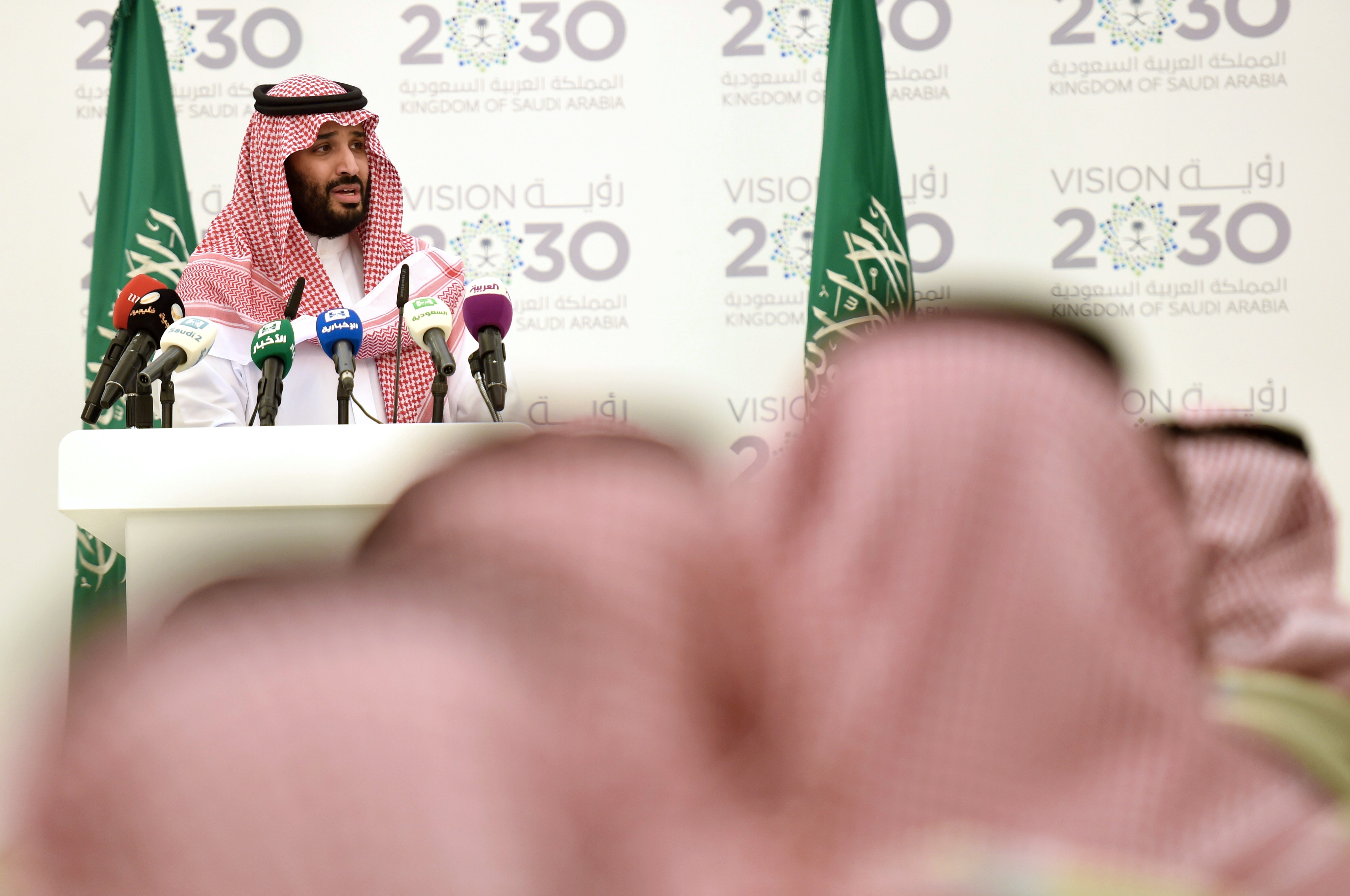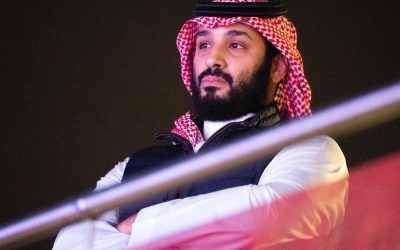King Salman legacy: The future of Saudi Arabia has never looked bleaker
Published date: 3 August 2020
In the first of her three columns assessing King Salman bin Abdulaziz’s legacy, Madawi al-Rasheed argues that the Saudi king will depart leaving the royal house shattered beyond repair

Saudi Arabia's King Salman bin Abdulaziz in the Saudi Red Sea coastal city of Jeddah on 25 September 2019 (AFP)
King Salman bin Abdulaziz's legacy is a paradox that was built on an apparent contradiction between reformist and repressive policies.
Both policies impacted upon a wide range of influential princes and commoners alike. Most memorable will be the incarceration of influential royal family members in five-star hotels and prisons since 2018.
A shattered royal house
Salman will depart leaving the royal house shattered beyond repair. His hawkish son Mohammed deployed the most humiliating methods and intrigues against his rivals and their extended clans, an act that may haunt him in the future should he secure the throne after his father disappears from the scene.
The Saudi ruling house kept the semblance of unity and agreement necessary to maintain this precarious social and political order
Before Salman’s reign, many observers considered Saudi rulers to have a strong legitimacy of a traditional nature, cemented by a functioning social contract between princes and commoners.
Both benefitted from lavish oil subsidies and welfare services. The kingdom was believed to be unique because its ruling house, the Al-Saud, allegedly maintained a tradition of consensus among its most powerful clans and princes. The ruling house kept the semblance of unity and agreement necessary to maintain this precarious social and political order, sprawling across generations of royal offsprings.
In addition to antagonising influential members of the royal house, Salman’s kingdom appears to have also alienated its traditional social allies - namely the religious groups that had always supported the leadership as well as the quasi-independent ones who had historically oscillated between acquiescence and dissent.
These groups are now firmly rejecting all his mediocre mass-market policies. Those who occasionally rebelled were eliminated. Those who had occasionally been patronised are now lingering in prison. Others fled the country in search of safe havens.
Too many enemies
Tribal groups who had displayed loyalty to the king and always rushed to offer the oath of allegiance are now not only ignored, but also humiliated. They are often subjected to violence against their lives and property.
In Salman’s kingdom, from the Howeitat in the north to the Utaybah in the centre, tribal sheikhs and members are either ignored or utterly dismissed as relics from a distant past
In Salman’s kingdom, from the Howeitat in the north to the Utaybah in the centre, tribal sheikhs and members are either ignored or utterly dismissed as relics from a distant past.
Their leaders have become decorative after both the king and his son subjugated and silenced them. Nobody knows for how long they will remain silent over their marginalisation and utter humiliation.
Salman’s kingdom promised to nurture the new young citizen rather than the archaic remnants of a tribal past. Savvy propagandists such as Saud al-Qahtani, the crown prince's right hand and global outreach arm, are promoted and protected.

When it comes to eliminating troublesome journalists abroad like the murdered Jamal Khashoggi or intimidating the ones who stayed in the kingdom, these propagandists-turned-hit-men obey orders unquestioningly.
A bleak future
While Salman’s kingdom reached out to women and promised to empower them, those who aspired to real emancipation were incarcerated in prisons across the country. Salman and his son appointed several women to high positions, allowing them to drive and increasing their visibility.
However, Salman’s kingdom trembled as women activists demanded real rights, beyond the driving wheel or the football field. The unintended consequences of empowering women in a real sense proved too dangerous and volatile for the regime to tolerate.
The fortunes of young men were equally as dire as those of their sisters. Salman’s kingdom has unwittingly facilitated an exodus of young men and women for whom the status of asylum-seeker abroad is preferable to silence or, even worse, incarceration in the rich desert kingdom.
Cinemas and circuses were not enough to buy their loyalty. Against his will, Salman’s kingdom has produced a substantial Saudi diaspora that escaped right under the king’s nose.
Salman will depart the kingdom that his son was destined to mould according to his own image. His legacy is based on the promise to usher in a new era of openness, prosperity, economic diversification and ample opportunities for investment and tourism.
It is up to his son to promote this narrative, not only about the new kingdom but - above all - about himself, the heir to the throne. Representations of the young crown prince mixed serious assessment with public-relation propaganda, wishful thinking and manipulation of knowledge about the country - all engineered by the crown prince’s aides and media tycoons, and accepted by outside media at face value.
Salman’s kingdom represents an extreme form of social polarisation, in which only a small coterie of loyal subjects benefit from royal largesse. This has made the monarchy a divisive agent precipitating rifts and antagonism, at the expense of a unity.
With less oil revenues to silence potential dissenting voices and ongoing threats from global hazards such as Covid-19, the future of Salman’s kingdom has never looked bleaker. It is doubtful that the crown prince will be able to correct the record and establish domestic bliss after his father passes away.
The views expressed in this article belong to the author and do not necessarily reflect the editorial policy of Middle East Eye.


0 Comments:
Post a Comment
Subscribe to Post Comments [Atom]
<< Home